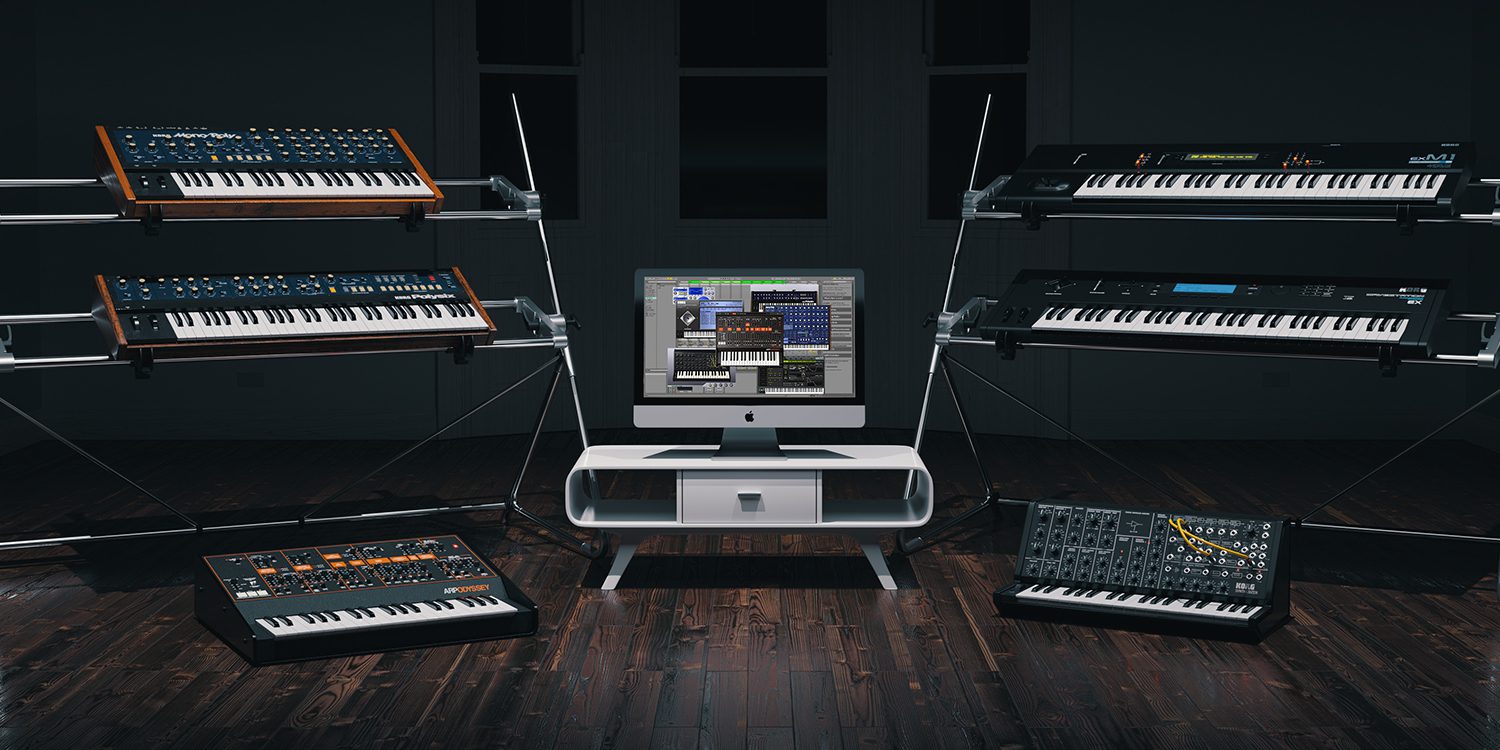
Because they are mechanical, they are also easier to damage from being dropped or knocked hard, so you need to be careful with them or you they corrupt your data if damaged.Īll those sample and loops can fill up your Startup Disk, so put them on their own external drive SSD That’s not good.Ī mechanical hard drive consists of a set of spinning disks inside an enclosure with multiple read/write heads that scan these spinning platters. Slower HDs may give you audio dropouts and poor track playback on audio projects. With music production you want a 7200 rpm mechanical drive as a minimum. There are two main formats: mechanical drives, often known as HD, and SSD (Solid State Drives). Regarding storage space, you will often see something like 1TB or more with desktop machines, or perhaps 256GB or 512 GB on offer with laptops.

So it’s a good idea to try and get one with as much RAM you can.
#MAC MUSIC PRODUCTION MAC#
Unfortunately, Apple laptops, smaller iMacs, and Mac Mini cannot be upgraded with more RAM later. If buying a MacBook Pro, for example, you should always try and budget for as much RAM as possible. For music production, you want a minimum of 16GB of RAM, or you will struggle. RAMĪn Apple Mac’s RAM is your working area it is where the CPU puts tasks it is working on in real time. But that won’t be for a little while, so we will be focusing on its current models in this article.

It will last longer and give you a better return for your initial investment.Īpple has announced that it will be moving to its own ARM-based CPUS. But honestly, I would always suggest you bite the bullet and go for an i7 CPU at least. If you are working on small projects with minimal track counts and only a small number of virtual effects plugins, you can often get away with just an Intel i5 chipset. CPUS – Intel i5 vs i7 and beyondĪs a musician, Intel i7 and i9 chipsets for your CPU are ideal These will give you enough power to handle larger, more complex productions. Be on the look out for these if you are interested in investing in a new Mac system. Some CPUs also have a feature called hyper threading, which effectively doubles the number of cores at your disposal. This will give you plenty of power to process complex tasks in real time, which is what making music in your DAW is all about, computationally speaking. As musicians, we should always be aiming for 6-core and 8-core CPUs, where budget allows. In multiple CPU computers, each is called a core. Most clock speeds on the current Intel Macs are somewhere in the 3.00 – 3.5 GHz range. The CPU is the ‘brain’ of your Mac, and has a clock speed and a number of cores.


 0 kommentar(er)
0 kommentar(er)
